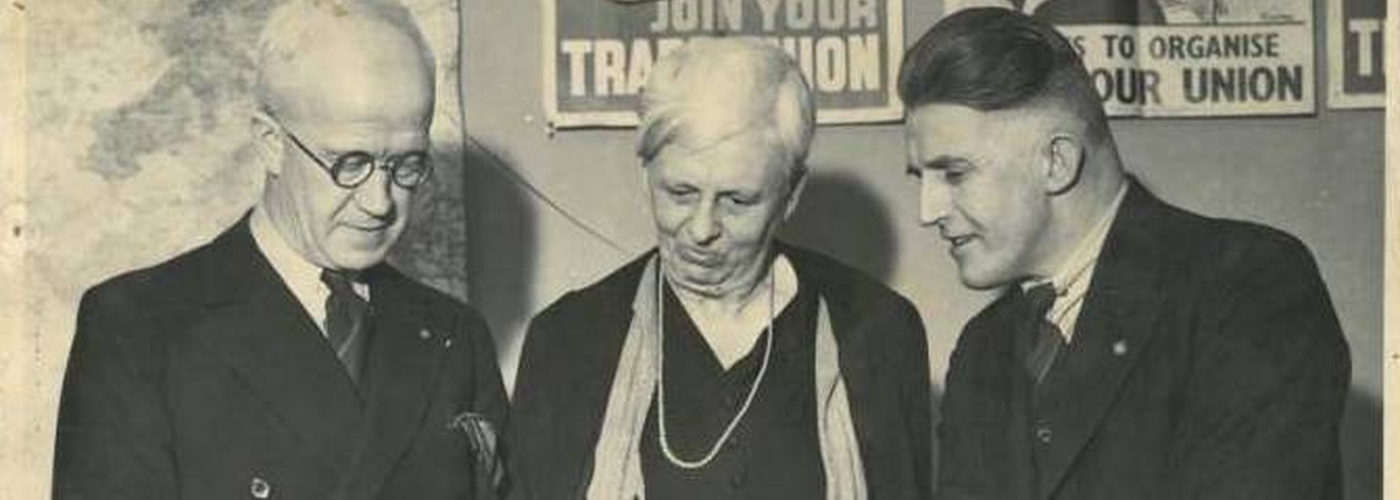A new website launched by the Mary Quaile Club gives a unique insight into two decades of women's trade union movement
When Dublin-born Mary Quaile immigrated to England in 1889-90, little did she know she was to become one of Manchester’s leading trade unionists. Taking up a job at the Clarion Café on Market Street, a popular meeting spot for political meetings, Quaile helped form a local branch of the National Café Workers’ Union - founded in Liverpool by a Mrs Billinge - leading to posts at Manchester Women’s Trades Council, Transport and General Workers’ Union and the Trades Union Congress. In 1925, she even led a delegation on a four-month tour of the Soviet Union.
Following her death in 1958, Manchester Guardian’s obituary stated: “Her determination to get trade unionism for women accepted was often met with jeers, boos, rotten apples, and threats of violence. She spoke at hundreds of factory gate meetings in both the East End of London and Manchester; she never betrayed any sign of fear when faced with hostility. Her warmth and lovable personality won for her many friends in the labour and trade union movement.”
Due to Quaile’s pacifist nature, her name commands less recognition than activists such as Emmeline Pankhurst - yet, like them, she dedicated her life to better rights for women. That’s why her namesake club, founded in 2014, now promotes awareness through a lively calendar of projects and events.
It was researching for a play last year - Jane McNulty’s Dare to be Free - which led to the discovery of two handwritten volumes containing more than two decades of minutes from the Manchester and Salford Women’s Trades Union Council. Quaile worked at the MSWTUC from 1911 to 1919 as an organiser and it seems she took them with her when the office closed in April 1919.
The insightful documents - presented to the Mary Quaile Club by Quaile’s great-nephew Martin Ennis - start when the organisation was founded in 1895, and go right up until its merger in 1919 with the Manchester and Salford Trades Council. They’ve now been painstakingly transcribed by Mary Quaile Club member Bernadette Hyland and can be seen on a specially-created website which launched last bank holiday weekend.
The MSWTUC was formed in February 1895 specifically to organise women workers, often in low paid jobs, into trade unions. Its early supporters included C P Scott, editor of the Manchester Guardian, who personally wrote by hand the minutes of the first two meetings in a beautiful script. The Council fostered trade unions among sewing machinists, upholsteresses, tailoresseses, cigar makers, cotton power loom weavers and many other trades.
Christabel Pankhurst was a member of the MSWTUC, as were other prominent Manchester women such as Margaret Ashton, the first woman councillor on Manchester City Council. Paid organisers included Sarah Dickenson and Eva Gore Booth.
Bernadette Hyland - who also runs a blog called Lipstick Socialist - said of the minutes: “We believe that these minutes are a unique item of national significance and will be a major contribution to our knowledge of women workers and trade unionism in the late nineteenth and early twentieth century. The minutes are hand-written, cover 760 pages in total, and are the complete record of the meetings of the Council, including both the decisions reached and also often what was said by those attending.
“They show the daily grind of supporting and encouraging working women into trade unions and agitating for decent pay and proper working conditions. A century later, women still face many of the same problems; with cuts in pay, benefits slashed and the growth of zero hour contracts. We feel that the work of the Council can be an inspiration to today’s women workers.”
Main image: Banner given to the delegation by Soviet women, TUC Library Collections
















